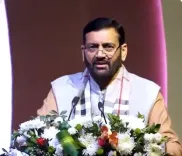Why Does the South Korean DP Candidate Believe Strong Ties with Japan are Crucial for Economy and Security?

Synopsis
Key Takeaways
- Importance of South Korea-Japan relations
- Economic and security cooperation
- Addressing historical grievances
- Strategic diplomacy
- Significance of APEC summit
Seoul, May 9 (NationPress) The Democratic Party (DP) presidential hopeful Lee Jae-myung emphasized on Friday the importance of sustaining robust relations between South Korea and Japan, asserting that cooperative efforts are crucial for both economic stability and national security.
Lee conveyed this message in a congratulatory note addressed to a forum organized by a DP legislator, as he intensifies his campaign for the upcoming June 3 election, bolstered by a rising lead in the polls, as reported by Yonhap news agency.
"South Korea and Japan are essential allies that have historically enjoyed a close collaborative partnership," Lee articulated in his address during the event focused on Seoul's relations with Tokyo.
He pointed out, "Continuing our bilateral cooperation is essential from both economic and security standpoints."
As Japan ranks as the fourth-largest trading partner for South Korea, the security alliance between these two nations has acted as the "bedrock for the trilateral security partnership with the United States, fortifying peace in Northeast Asia and contributing to the prosperity of South Korea," Lee remarked.
Lee urged for the enhancement of ties with Japan through "delicate and strategic diplomacy to promote national interests," especially during this crucial period of geopolitical transformation for South Korea.
However, he also acknowledged ongoing bilateral challenges arising from Japan's colonization of the Korean Peninsula from 1910 to 1945, along with the controversial discharge of contaminated water from the Fukushima nuclear power plant.
"Addressing historical grievances is particularly vital for fostering a future-oriented relationship," Lee stated. "The relations between South Korea and Japan can evolve further when dialogue and collaboration are anchored in mutual respect and accountability."
Lee, who is currently leading in opinion polls, has been amplifying his campaign to articulate his policy perspectives on economic and diplomatic matters.
On Friday, he visited the southeastern city of Gyeongju, the upcoming venue for the Asia-Pacific Economic Cooperation (APEC) summit, as part of his nationwide campaign to connect with voters in public settings.
Addressing locals at a market, Lee called for a successful APEC summit while celebrating the city's rich cultural heritage.
Located in the Gyeongsang region, Gyeongju is a significant area for the DP's conservative opponents.










